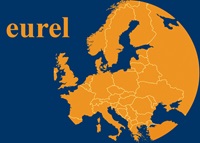In his final speech at the Munich Security Conference (MSC) 17th February 2025, the chair Christoph Heusgen reacted to the values expressed by the US vice president's critique of Europe; "After the speech of (US) Vice President Vance on Friday, we have to fear that our common value base is not that common any more”. Heusgen marked that Europe has a common value base that is different from the US value base, as expressed by Vance. So, what is Europe's common value base?
The history of Europe is a long historical process of forming the present European “soul” of values and ethics. Christianity has played a significant role as a common frame of reference and provider of a set of values. However, the churches have often had an opposite role. Dialectic conflicts between church authority and secularist forces of liberation have been important steps in the formation of common European values. The 16th century protestant reformation, the 18th Century enlightenment period with new scientifical discoveries changing the world views, and the French revolution1789 with the often-quoted values “liberty, equality, fraternity” and a “laicité” principle of a secular state. These historic revolts against the dominant Catholic church have contributed to the development of present European values and social ethics in different ways.
The present central role of the European Union (EU) as a defender of values of humanity was formed in the aftermath of the second world war. Europe was a significant part of the establishment of the United Nations 1945 and subsequently The Universal Declaration of Human Rights 1948. The following European history demonstrates a chain of newly established institutions located in Europe, with the aim to keep to and defend these values, e.g. The European Court of Human Rights 1959 and the International Criminal Court, ICC 2002. EU has become the world's largest and most important network of states with internal standards among the member countries defending human rights, a free press, independent courts, freedom of religion, women's rights and strict anti-corruption regulation. The EU countries are also significant international defenders of Human rights and international law and justice.
The core values of Europe, “the European soul” is today challenged not only by political ideologies, such as was expressed by the US vice president and e.g. the Russian president Putin. Increasing religious pluralism and demands from minority groups create tensions and conflicts that sometimes challenge the UN Declaration of Human Rights and what is commonly regarded as European ethics and values. Freedom of expression comes into conflict with freedom of religion. Equality between women and men is questioned by religious traditional practice. The European secularist principle of keeping religion as private matter in the common public sphere comes into conflict with unitary traditions making no division between religion, culture and politics.
The aim of this paper is to discuss what is the common value base of Europe related to its historical background, and what are today the main challenges to these values.
- Poster

 PDF version
PDF version

